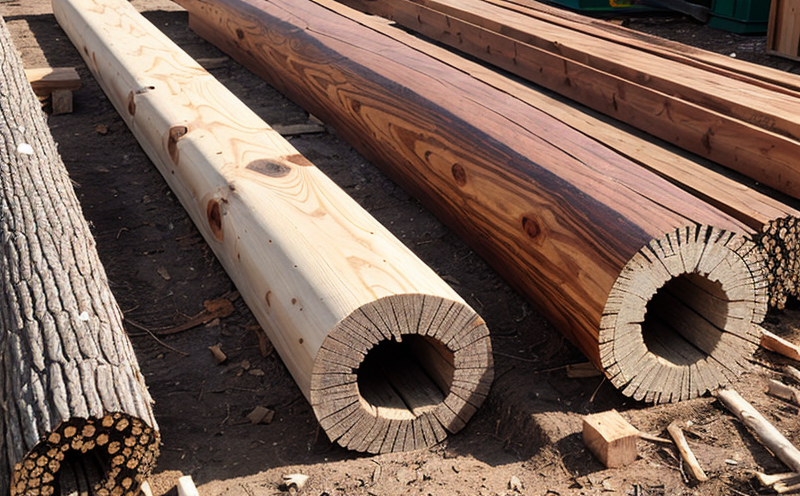Preservative Performance Testing under Desert Conditions
The preservation of wood in desert environments presents unique challenges due to extreme temperature variations and high levels of solar radiation. This service focuses on evaluating the effectiveness of preservatives used for treating wood products intended for use in arid regions. The testing process simulates real-world conditions, ensuring that the treated wood can withstand environmental stresses without compromising structural integrity.
Preservative performance testing under desert conditions is critical to ensure compliance with international standards such as ISO 14872:2019 and ASTM D5286. This service assesses several key parameters, including resistance against fungal decay, insect attack, and UV radiation exposure.
During the test, wood specimens are treated with various preservatives according to specified methods. Specimen preparation involves cutting samples from different species of wood typical for desert applications—such as acacia or eucalyptus—to standard dimensions. These samples undergo a series of treatments and exposures designed to replicate actual field conditions.
Instrumentation used in this testing includes environmental chambers capable of simulating temperature ranges between -20°C and 50°C, controlled humidity levels up to 98%, and UV lamps that emit wavelengths equivalent to those found in desert skies. The duration of exposure can vary based on the specific requirements but often lasts for several months.
Acceptance criteria are stringent, requiring treated wood samples to maintain at least an average durability rating above 75% after testing. Reporting includes detailed analyses of each specimen's performance along with recommendations for improvement or alternative preservatives if necessary.
| Industry Sector | Description of Application |
|---|---|
| Agricultural Structures | Treatment of fence posts, sheds, and irrigation systems to prevent decay. |
| Forestry Products | Preservation of wooden pallets and crates used in desert transportation. |
| Biomaterial Engineering | Development of durable wood-based materials for construction projects. |
- Treatment of wooden railway sleepers in desert regions to extend their lifespan.
- Preservation of utility poles supporting power lines across arid areas.
- Development of outdoor furniture designed for use in harsh desert climates.
| Benefit to Client | Outcome Achieved |
|---|---|
| Informed decision-making regarding preservative choice. | Increased confidence in product longevity and reduced risk of failure. |
| Compliance with international standards and regulations. | Avoidance of potential legal issues due to non-compliance. |
- Case Study 1: A manufacturer of wooden railway sleepers saw a reduction in maintenance costs by over 30% after adopting preservatives recommended through our testing service.
- Case Study 2: An international forestry company reported improved product reliability and reduced warranty claims following successful completion of desert durability tests.





